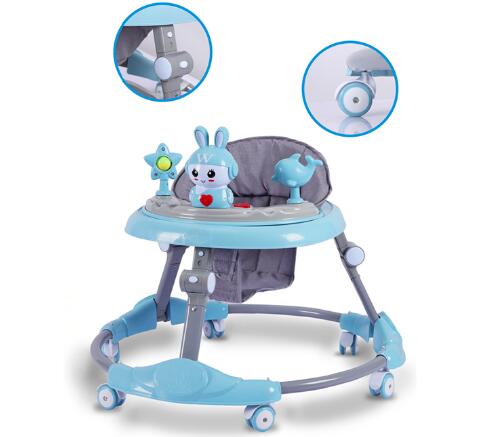Jul. 28, 2023
Home & Garden
The use of baby walkers to help infants learn to walk is a topic that has been debated among experts and parents for many years. Baby walkers are devices with wheels that allow babies to move around in a seated position while supported by a frame. While some parents believe that baby walkers can aid in a child's walking development, there are also concerns about their safety and potential impact on a child's natural learning process.
Pros of Baby Walkers:
Mobility: Baby walkers provide infants with increased mobility and independence, allowing them to move around the house and explore their surroundings.
Entertainment: Many baby walkers come equipped with toys and activities, which can entertain and stimulate the baby while they are using the walker.
Leg Muscle Strength: Some parents believe that using a baby walker helps strengthen the baby's leg muscles, which could potentially contribute to walking development.

Cons of Baby Walkers:
Safety Concerns: Baby walkers can pose significant safety risks. Babies using walkers can move at faster speeds and may access hazardous areas or objects, leading to accidents and injuries.
Delayed Walking Development: Some studies suggest that babies who frequently use walkers may experience delays in achieving independent walking. This is because the walker provides artificial support, and the baby may not learn the natural weight-shifting and balance needed for walking.
Muscle Imbalances: Prolonged use of walkers for baby may lead to muscle imbalances, as the baby relies on the walker for support rather than using their muscles to develop walking skills.
Expert Recommendations:
Many pediatricians and child development experts discourage the use of baby walkers due to safety concerns and potential developmental delays. The American Academy of Pediatrics (AAP) strongly advises against the use of baby walkers and recommends using safer alternatives for babies to learn to walk, such as:
Tummy Time: Encouraging supervised tummy time helps strengthen the baby's neck, back, and shoulder muscles, promoting overall development.
Floor Play: Allowing babies to play on the floor without confinement enables them to explore and develop their motor skills naturally.
Assisted Walking: Holding the baby's hands and providing support while they learn to walk encourages natural walking development without the risks associated with walkers.
In conclusion, while baby walkers may provide mobility and entertainment for infants, they are not recommended by experts due to safety concerns and potential developmental issues. Instead, providing babies with ample floor play and supervised tummy time, along with assisting them in their walking journey, promotes healthy and natural walking development while minimizing safety risks. Always consult with a pediatrician for personalized advice and recommendations for your child's developmental milestones.
Hebei Province Shimaotong Import and Export Service Co., Ltd. Focus on the school walker customized solutions. Supply Baby Strollers, Baby Carrier, Baby Walkers and other products.
Previous: Do Ski Jackets Make Good Winter Jackets?
If you are interested in sending in a Guest Blogger Submission,welcome to write for us!
All Comments ( 0 )